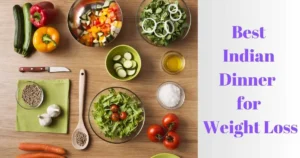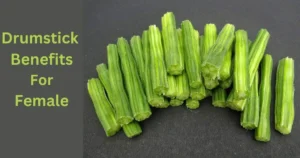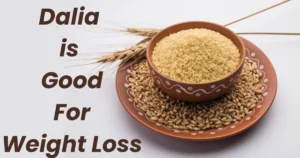Introduction
This article explores the best food to eat in rainy season, which is nutritious, helps to boost immunity, and improves overall health. The beautiful rainy season comes with increased moisture in the air, which is favorable for the growth of various pathogens and multiply in this humid environment.
During monsoons, the risk of contamination of food increases and may give rise to various health hazards like gastrointestinal infections, colds, coughs, and flu. During this rainy period, one needs to be more cautious. One should adopt healthy and nutritious eating habits to prevent certain health conditions and improve wellness.
Want to stay warm and healthy in rainy weather? Try these different varieties of best food to eat in rainy season that is easily available in India. Find out what to eat during the rainy season now.
Read More: Is Poha Good For Health
Best Food To Eat In Rainy Season
One should prefer eating seasonal fruits, vegetables, and grains as the season changes. They provide you with nutrients that enhance your immunity levels and can be beneficial for your overall health.
Individuals with low immunity are often susceptible to various infections when the season changes. Thus, incorporating food rich in vitamin C, vitamin D, antioxidants, zinc, and iron, can help improve the immunity of individuals.
Looking for rainy weather-friendly foods? Check out these Indian varieties of best food to eat in rainy season, perfect for the monsoon season.
What To Eat In Rainy Seasons As Per Ayurveda
As per Ayurveda, in this rainy season, there is Vata Dosha Prokop (Vata aggravation), deposition of pitta dosha (Pitta Sanchay), and Agni mandya (Digestive fire is vitiated) which may give rise to symptoms like indigestion, bloating, diarrhea, loss of appetite. The good thing is that you can balance these doshas by adding different kinds of food optimizing your health.
During the rainy season, foods having a sweet, sour, and salty taste and snigdh(unctuous) qualities are to be consumed to balance vaat dosha and increase the Agni (digestive fire).
During monsoon, eating a balanced and nutritious meal is important for health. The best food to eat in rainy season as per the Ayurveda concept is listed below.
1. Vegetables To Eat In Rainy Season In India
Vegetables like pumpkins, drumsticks, okra, snake guards, ridge guards, bottle guards, and pointed guards are the most preferred vegetables consumed in the rainy season as per Ayurveda.
These vegetables are easy to digest and nutritious as well. Avoid eating leafy vegetables as they can be too heavy to digest.
But, if you like to eat leafy vegetables, make sure you boil, drain, and saute them well with cumin, garlic, curry leaves, and asafoetida to balance the doshas in your body.
2. Fruits To Eat In Rainy Season
- The most preferred fruits to include in monsoon are star fruit, apples, sweet limes, pomegranates, and pears.
- These fruits are rich sources of vitamin C, antioxidants, B vitamins, essential minerals, and hydrating. These fruits help to boost your immunity, improve your energy levels, and are beneficial for overall health.
3. Grains
- As recommended by Ayurveda, Jau (Barley), wheat, and rice are the grains preferred in rainy seasons. These grains should be at least a year old. These grains are usually considered the best food to eat in rainy season.
- Avoid eating puris and parathas; instead, prefer making roti (phulkas). You can spread a little cow ghee over the roti.
- Prevent cooking rice in a pressure cooker by cooking it in a pot.
- Eating millet in this season is not recommended due to its ruksha (dry) guna (nature).
- But sometimes if you are craving to eat millet roti, spread a little cow ghee or sesame oil over the roti to balance the rukhsha guna of millet and relish it.
4. Lentils
- In this monsoon season, moong dal (green gram) is the greatest option. You can consume both whole moong and split moong.
- As per Ayurveda, moong dal is best to balance your doshas. And if you soak the dal overnight or for 5 to 6 hours before cooking, it becomes easier to digest.
- If you don’t like moong daal, you can include arhar dal (pigeon peas) as well in your diet.
5. Spices And Herbs
- Spices like turmeric, ginger, pepper, clove, and cinnamon have anti-inflammatory properties. They are beneficial in both respiratory and digestive health.
- According to Ayurveda, spices have hot potency, which is favourable for our body in rainy seasons to balance the vaat dosha.
- Spices like cumin, ajwain, turmeric, ginger, pepper, dry ginger powder, garlic, and clove can be used to prepare the food to aid the digestion process and improve appetite.
- Preferably, eat cumin and saunf (fennel) seeds after your meal for smooth digestion of food.
- One should keep oneself hydrated during monsoons. Try to keep yourself warm and can prefer drinking herbal teas, including ginger, basil leaves, or mint.
- These herbs aid in digestion, increase appetite, and prevent you from common cough and cold.
- If you are suffering from a cold and cough, you can prepare kadha too by adding ingredients like cinnamon, pepper, cloves, ginger, and jaggery to boiling water.
- You can have one cup of kadha two to three times a day to get rid of cough and cold symptoms.
6. Soups
- Soups are nutrient-dense, full of fiber, and easy to prepare.
- One can prefer taking soups in the evenings such as Lentil soups (green gram), pumpkin soups, mix vegetable soups.
- Soups provide you with essential vitamins and minerals and keep you full and satiated.
7. Curd
As mentioned in Ayurveda,
- Curd or buttermilk can be included in your diet during monsoons.
- Curd is known to have hot potency and should be taken in proportion.
- One should prefer taking curd for breakfast and lunch, and avoid it at dinner.
- Do not heat curd, and take it freshly prepared at room temperature.
- You can prepare buttermilk and have it with your meals.
- While you are consuming buttermilk, add jeera powder, rock salt, hing, and curry leaves which can aid in digestion and increase your appetite.
- Or, you can also add a pinch of pepper, salt, and dry ginger powder to buttermilk to reduce vata dosha.
Water
- Water is most essential for hydrating your body in monsoons.
- During monsoons, you should drink boiled water.
- Prefer drinking lukewarm water.
- As per Ayurveda, boiled and lukewarm water can be beneficial to increase your appetite, help digestion, and relieve cough, cold, and fever.
- You can also add pepper, clove, cumin, and ajwain (carom seeds) to boiling water to add more medicinal value, and can have this medicated water to balance your doshas and benefit overall health.
What Not To Eat In Rainy Season
- Avoid eating rajma, chole, and peas as they are heavy to digest.
- Do not eat stale food or food kept in the fridge.
- Avoid drinking cold water or cold drinks in the rainy season, as it may aggravate the vata dosha.
- Do not eat street food. It would be best if you preferred eating homemade, freshly prepared food.
- Prevent eating deep-fried food like pakora, sabu dana, and other junk food, as these foods may give rise to indigestion and abdominal discomfort.
- Avoid eating non-vegetarian food, seafood, and uncooked food (raw vegetables) during the monsoon.
- Do not drink buffalo milk this season. Instead, take lukewarm cow milk with 2 pinches of dry ginger powder or turmeric powder.
- Do not over-exercise.
- Avoid sleeping in the daytime as it may give rise to indigestion. If you are too tired, take a nap for 20 to 30 minutes, but do not sleep for hours at day time.
Precautions
One should eat food only when the previous food taken is digested completely. You should not eat food unless feeling hungry. Do not overeat. Always prefer eating freshly prepared homemade food.
During monsoon, certain health issues become more common such as colds, flu, respiratory issues, joint pains, and digestive issues, making it crucial that we modify our diet to maintain optimum health and wellness.
Treatments
In Ayurveda, it is recommended to cleanse your body by undergoing Vamana ( therapeutic vaman) and Virechana ( therapeutic purgation), followed by taking Basti (medicated enemas) to control vata dosha. These procedures are done at panchakarma centers under the guidance of doctors.
Conclusion
Monsoon is a refreshingly beautiful season, but you need to take certain safety measures concerning hygiene, health, and diet. This article provides you with brief information on the best food to eat in rainy season that helps to balance the doshas in your body.
One should add more fluids, soups, seasonal fruits and vegetables, spices, and nuts. They improve digestive health, increase metabolism, and enhance immune functions in this rainy season.
FAQ’s
Q1. What to eat in rainy season in India?
Ans: Food that tastes sweet, sour, salty, and easy to digest is good for monsoon. Pomegranate, apple, star fruit, jamun, barley, wheat, rice, green gram, bottle guard, ridge guard, okra, and ash gourd are the food options that can be preferred to eat in the rainy season.
Q2. Is curd good in rainy season?
Ans: Ayurveda suggests eating curd in the rainy season owing to its hot potency. But it should be taken within limits. Curd should be preferably consumed in the daytime such as for breakfast and lunch and should be avoided for dinners.
Q3. Is rice good in rainy season?
Ans: Yes! Rice can be taken in the rainy season. Preferably consume at least a year-old aged rice as it is easy to digest.
Q 4. Which drink is good in rainy season?
Ans: Hot soups, herbal teas, hot milk, lukewarm water, medicated water, and kadha are some of the best drinks for rainy days.
Q5. Which sabzi to eat in rainy season?
Ans: During the rainy season, one should prefer eating drumsticks, eggplant, pumpkin, ash gourd, okra, bottle guard, ridge gourd, and pointed gourd. Avoid eating leafy vegetables in the monsoon.
References
Ritucharya: Answer to the lifestyle disorders




